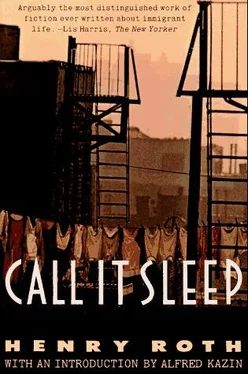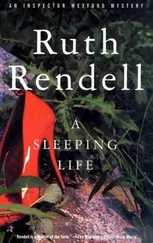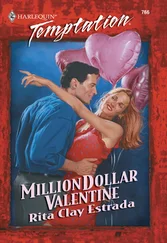“I don’t know.” He brushed by her. “You’d better see a doctor.”
“Oy bist du a chuchim!” she spat after him in Yiddish. “Does the breath of your mouth cost you something?”
His mother returned. Her hair was disheveled. Tears still stained her cheek though she had stopped crying. “You’ll have some tea in a minute, darling.” A tremulous gasp of after-weeping shook her. “Does your foot hurt very much?”
“N-no,” he lied.
“They told me you were at the car-tracks,” she shuddered. “How did you come there? You might have been— Oh! God forbid! What made you go? What made you do it?”
“I don’t — I don’t know,” he answered. And the answer was true. He couldn’t tell now why he had gone, except that something had forced him, something that was clear then and inevitable, but that every passing minute made more inarticulate. “I don’t know, mama.”
She groaned softly, sat down on the bed. The fat woman with the bare arms touched her shoulders and leaned over her.
“Poor Mrs. Schearl!” she said with grating, provocative pity. “Poor Mrs. Schearl! Why ask him? Don’t you know? Our bleeding, faithful mother’s heart they think nothing of wringing. Nothing! Woe you! Woe me! Before we see them grown, how many tears we shed! Oy-yoy-yoy! Measureless. So our children bring us suffering. So our men. Alas, our bitter lot! No?” Her see-saw sigh heaved gustily, pitched audibly. She folded her hands on her loose flabby belly and rocked sorrowfully.
His mother made no answer, but gazed fixedly into his eyes.
In the kitchen, he could hear the policeman interrogating his father, and his father answering in a dazed, unsteady voice. That sense of triumph that David had felt on first being brought in, welled up within him again as he listened to him falter and knew him shaken.
“Yes. Yes,” he was saying. “My sawn. Mine. Yes. Awld eight. Eight en’—en’ vun mawnt’. He vas bawn in—”
“Wait a minute!” The policeman’s voice interrupted him. “Say, Doc, befaw yuh go, tell us, did I do it good. You know — dat foist-aid business. Waddayer say? In case dere’s a commendation er sompt’n.”
“Sure! Fine! Couldn’t have done it better myself.”
“Tanks, Doc. An’ say, gimme de medical repawt, will yuh? Shock? Foolin’ aroun’ wit’ de car-tracks wit — Heh! Heh! — merlicious intent.”
“Oh — er — just say, shock … caused by … short circuiting … trolley power — what d’you call it — rail.”
“Yea.”
“Then — electrical burn … on ankle … right foot … second degree. Got it?”
“Secon’ degree, yea.”
“Applied artificial respir—”
“Aw Doc, have a heart, will yuh!”
“You want a commendation, don’t you?” the interne laughed. “Well anything — first aid. Child revived— I’ve left a slip for you, Mister. On the table. Carron oil. Smear it around the ankle tonight and tomorrow. The blib ought to be gone in a day or two.”
“Yes.”
“And if he doesn’t feel well tomorrow, take him to the Holy Name Hospital — it’s on the slip. But he’ll be all right. Well, Lieutenant, I’ll see you again.”
“Yea. So long, Doc.”
The woman who had gone out with David’s mother came in balancing a cup of tea. Silently his mother propped him up on the pillows and began feeding him out of the spoon. The hot, sugared tea quickened his blood. He sighed, feeling vitality return, but only enough to know his body’s weariness. There were no more cool places between the sheets for his throbbing foot. The women in the doorway had turned their backs to him and were listening to the policeman who was holding forth in the kitchen.
“An’ say,” his reassuring voice boomed out. “I woiked over ’im, Mister, an’ no foolin’! Yuh hoid wot de Doc sez, didntcha? If it wuzn’ fer me, dat kid wouldn’ be hea. Yessir! People don’t appreciate a cop aroun dis neighborhood. But w’en dere in dutch— Say, I seen ’em boined, Mister! I’m tellin’ yuh. I seen a switchman was so boined — say! He musta fell on de rail. An’ nobody knew a t’ing about it. Out dere in de car-barns on a hunner’n fifty-fift’ an’ Eight’ Avenoo. Must a been on dere fer hours. An’ de foist t’ing yuh know, his bones was troo de elevated — right down t’ de ground — black as zat stove, Mister! Y’had-da gadder ’im up in a sheet. Yessir! So he wuz gettin’ off easy, dat kid o’ yours. But even so if it hadn’ta been fer me— Say, d’yuh wan’ all o’ dese people in hea?”
“I–I don’—” His father sounded stunned. “I–I—you—”
“Sure. C’mon goils. De kid’s gotta get some quiet now. Waddayuh say? All right, gents.”
“Vee know dem,” voices objected. “Vee liff heyuh.”
“Not hea’,” indulgently. “Not all o’ yiz. C’mon. Come in later — one at a time—”
There was a general shuffling of feet, murmured protests.
“Er fumfit shoin far a bissel geld,” sneered the woman with the bare arms as she went out. “Gitzeem a krenk!”
“I god Davy’s shoes and stockin’, Mister,” a boy’s voice piped. “He goes to my cheder.”
“Atta boy. Just leave ’em hea. C’mon de rest o’ yiz. Dat goes fer you too, Solomon.”
Feet went through the doorway, voices dwindled. The door was shut.
“Well, I got de place quiet for yuh,” said the policeman. “Funny all de trouble dese kids o’ ours gives us, huh? You said it. Geeziz I’m a cop an’ I can’t keep mine in line, bringin’ home repawt co’ds dat’d make yer hair toin grey. Well, my beat’s aroun’ hea’ in case yuh wanna see me sometime. Walsh is de name.” He loomed up in the doorway. “How’re yuh feelin’ now, kid? He’ll be all right. Sure. He’s full o’ de devil a’reddy. I’ll fan yuh wit’ me stick if I catch yuh foolin’ aroun’ dem tracks again. See? ’Night.” He flicked an open palm, turned and went out.
He had finished his tea. The sudden, flushing surge of heat that filled the hollows of his tired body drove stipple of perspiration to his brow and lips. His underwear clung to him cutting at the crotch. The trough of the bedding where he lay had become humidly warm and uncomfortable. He wriggled closer to the cooler edge of the bed where his mother was seated and lay back limply.
“More?” She asked putting the cup down on the window sill.
“No, mama.”
“You’ve had nothing to eat since the morning, beloved. You’re hungry, aren’t you?”
He shook his head. And to ease the throbbing in his right foot, slid it furtively from under the covers at her back to cool it.
His father stood in the doorway, features dissolved in the dark. Only the glitter in his eyes was sharply visible, fixed on the puffy grey ankle. His mother turned at his tread, spied the swollen foot also. Her sucked breath hissed between pain-puckered lips.
“Poor darling! Poor child!”
His father’s hand fell heavily against the door-frame. “He’s written down the name of some medicine for us to get,” he said abruptly. “To smear on his foot.”
“Yes?” She half rose. “I’ll go get it.”
“Sit there!” His peremptory tone lacked force as though he spoke out of custom, not conviction. “It will be quicker for me to get it. Your neighbors outside won’t delay me with their tongues.” But instead of going he stood where he was. “He said he’d be better in a day or two.”
She was silent.
“I said he’d be better in a day or two,” he repeated.
“Yes. Of course.”
“Well?”
“Nothing.”
There was a pause. His father cleared his throat. When he spoke his voice had a peculiar harshness as though he were at the same time provoking and steeling himself against a blow.
Читать дальше












